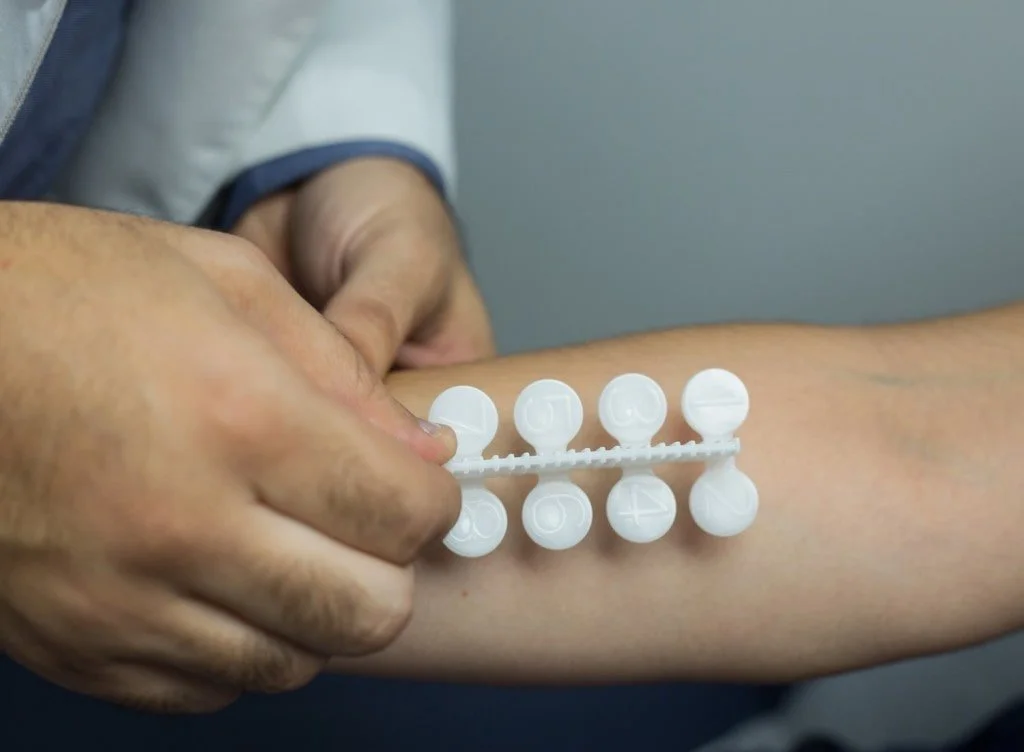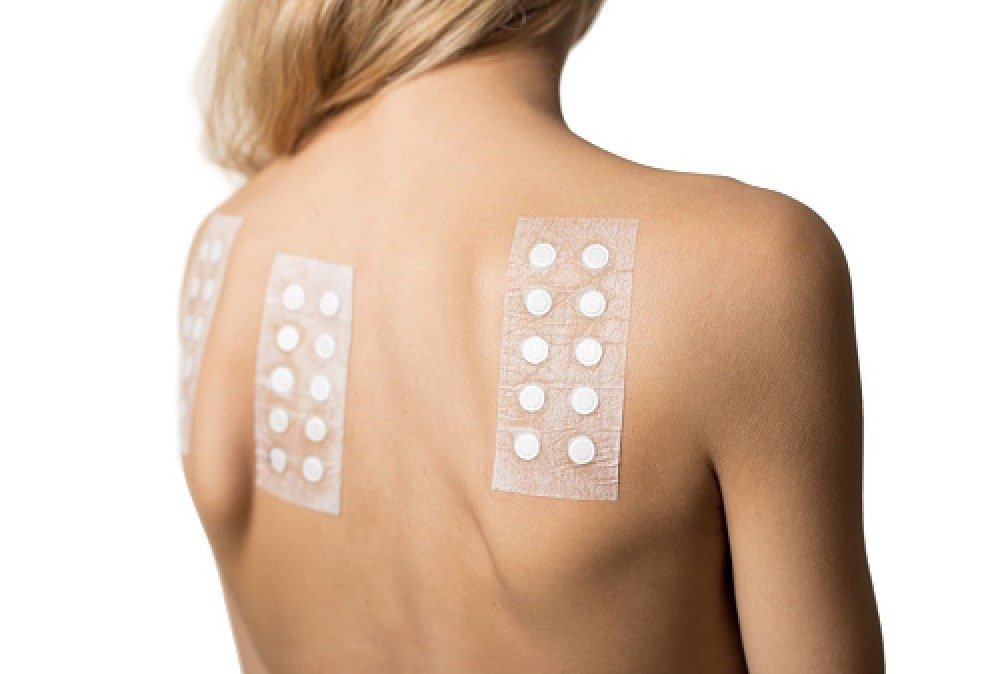Allergy Skin Test
What to expect at your skin test?
These tests are relatively quick and painless using a method called “scratch” testing. They are performed by our certified technicians. You may need to stop taking certain medicines before the test. These include antihistamines and antidepressants. We will let you know which medicines to avoid before you test and for how long. Refer to our Resources for common medications to avoid.
What is an allergy skin test?
Allergy skin testing is a series of tests on the skin that involves applying a small amount of an “extract” containing different allergens that will be applied with a plastic applicator. The skin is not broken during testing. Reactions are measured 15-20 minutes after testing has been applied. Positive reactions may itch or cause mild discomfort. Allergy skin testing can be performed for environmental allergies, foods, insects, and some medications.
Types of Testing
Skin Prick Test – also called a puncture or scratch test.
Intradermal Test – this test injects a small amount of allergen just under your skin.
Patch Test – the test puts an allergen on a patch and then sticks that on your arm or back. Patch tests take more time, you’ll have to wear a patch for about 48 hours in case you have a delayed reaction to the allergen.
If you receive a patch test, you’ll go home with bandages on your skin. Don’t get these areas wet — no baths or swimming. When you go back to us in a couple of days, we will take another look at your skin.
What type of testing will be performed is determined by your doctor at the time of visit.
We will interpret the findings of allergy skin testing based on your case history and allergy symptoms. In addition to any current medications for allergy symptoms, we will guide how to reduce potential allergic reactions by taking preventative steps.
Allergy Skin Test FAQ's
-
The most common allergens tested for in an allergy skin test include pollen, mold, dust mites, pet dander, and certain foods. However, other allergens can also be tested depending on the individual's specific allergy symptoms.
-
Some medications, such as antihistamines, can interfere with allergy skin test results. It is important to not take antihistamines 5-7 days prior to testing and talking to your doctor about any other medications you are taking before undergoing an allergy skin test.
-
For the skin prick and intradermal tests the results can be seen within 15-20 minutes after the test is performed. However, for the patch tests the patches will be applied in about 15 minutes but you will need to come back after 48 hours so the results can be evaluated.
-
The cost of a skin allergy test can vary depending on several factors, including the location, the type of test performed, and whether or not insurance covers the test. On average, the cost of an allergy skin test can range from $60 to $300. However, some tests, such as comprehensive panels that test for multiple allergens, may cost more.
-
Yes, allergy skin tests can be performed on infants and young children. However, the testing procedure may need to be modified to account for the child's age and size. In some cases, a blood test may be used instead of a skin test in young children.
-
Allergy skin tests are generally considered to be very accurate. However, false positives and false negatives can occur.
-
Yes, it is possible for a person to be allergic to an allergen but not show a reaction during an allergy skin test. This is known as a false negative result.
-
No, an allergy skin test can only diagnose certain types of allergies. For example, they may not be effective for diagnosing food allergies or some medication ones. Other tests, such as blood tests, may be necessary for an accurate diagnosis.
-
Yes, allergy skin tests are generally considered to be safe. However, as with any medical procedure, there is a small risk of complications, such as infection or an allergic reaction.
-
In rare cases, a person may end up feeling sick after an allergy skin test or have an allergic reaction. If this occurs, the test will be stopped immediately, and the person will be treated with medication to alleviate symptoms.

MAKE AN APPOINTMENT
Telephones are answered from:
8am – 5pm (Monday – Thursday)
8am – 4pm (Friday)





